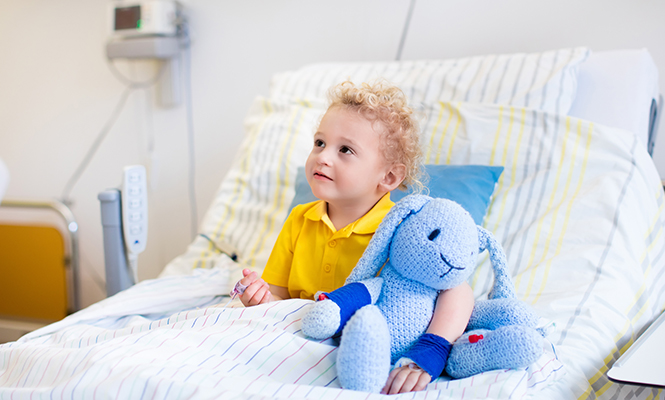
Around 750 children in Australia under 14 could be diagnosed with cancer this year, according to the Australian Childhood Cancer Registry. While mortality rates are down, these diagnoses will still result in an average of 101 deaths annually.
It’s a sobering fact. But with September marking International Childhood Cancer Awareness Month, it’s a perfect opportunity to reflect on the work being done to bring those numbers down.
Five-year survival rose to 84% for children diagnosed with cancer between 2003 and 2012, up from 79% 20 years earlier
Leukaemias are the most common cancers found in children in Australia, with acute myeloid leukaemia (AML) its second-most common form.
With a five-year survival rate of less than 30%, improving its treatments is a vital endeavour. Dr Lev Kats is one researcher looking to make sure more people survive a diagnosis.
“Standard treatment for AML often involves high dose chemotherapy with significant side effects, and options are limited for patients who do not respond or who relapse,” Dr Kats said.
“Novel therapies for AML represent an area of urgent, unmet clinical need.”
Chemotherapy is currently the primary treatment for AML, but it’s an intensive process requiring numerous hospital admissions, blood and platelet infusions, and antibiotics.
Though the Royal Children’s Hospital Melbourne says AML is curable in 60% of children, Dr Kats is searching for a better way to do it.
Dr Kats, a Group Leader at the Peter MacCallum Cancer Centre, is focusing his research on the DNMT3A gene. Mutations in this gene are found in around one-quarter of AML cases and are linked with poor prognoses. Though such mutations are relatively rare in children, any progress made towards better leukaemia treatments could see fewer kids lost to cancer.
With the help of funding from Cancer Council Victoria, Dr Kats and his research partner Professor Ricky Johnstone are looking to develop a “new generation” of drugs. These, they hope, will kill leukaemic cells while leaving normal tissues unaffected.
Because of people like you, their work is currently funded until 2021, with the goal being to take a new drug to clinical trials in the hopes of finding a complete cure for AML. Dr Kats wants their research to “make significant contributions to scientific understanding that will be of benefit to public health in Australia and worldwide.”